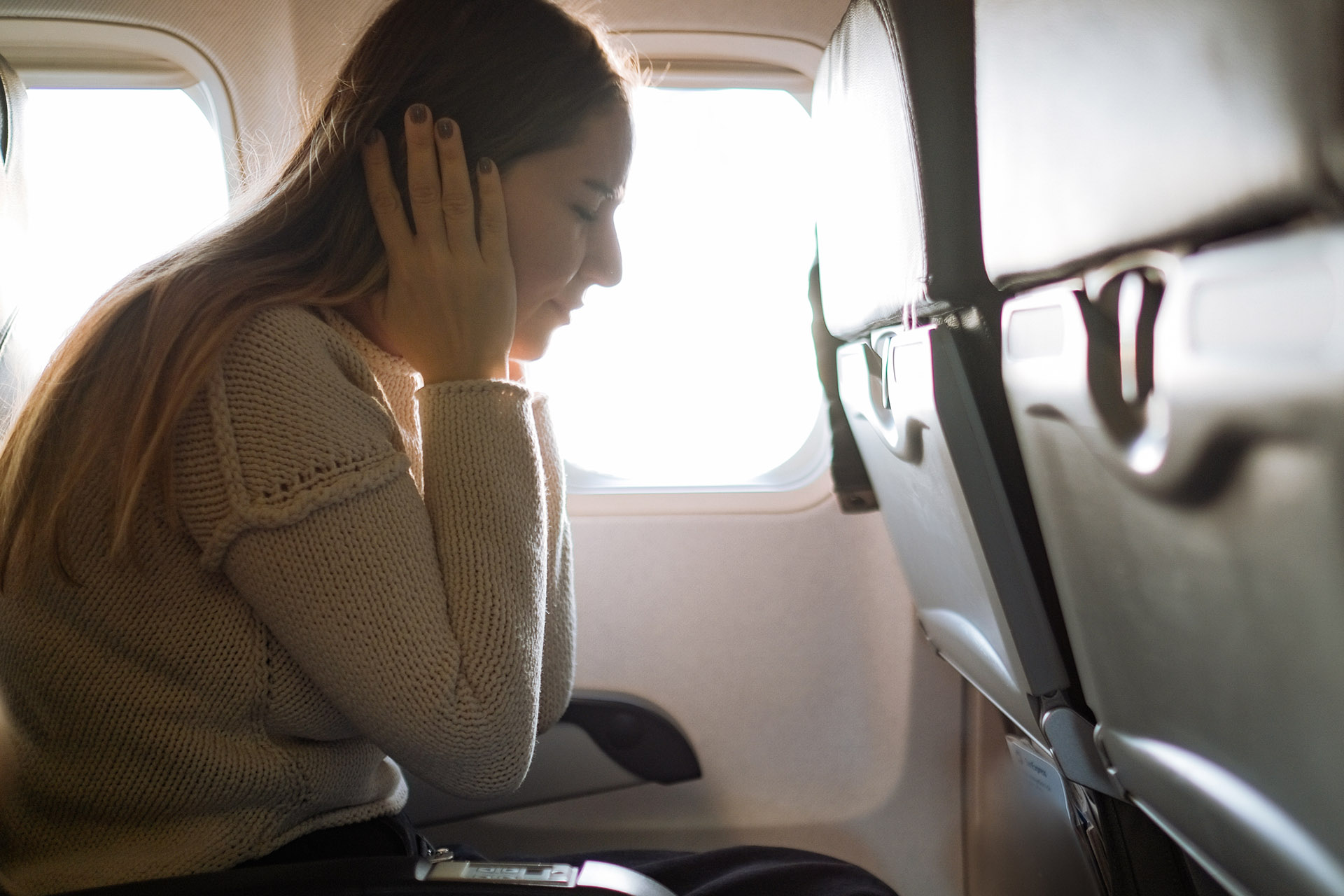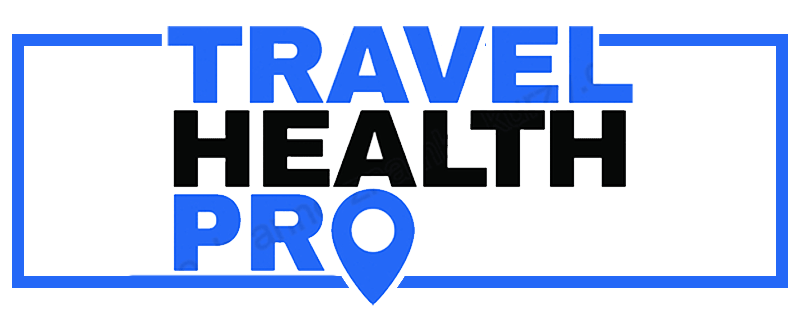To mark Mental Health Awareness Month, we reached out to TravelHealthPro to help identify the key mental health issues facing business travellers and to offer practical guidance on what they can do to identify and alleviate the symptoms.
TravelHealthPro is the website comprising the travel health resources of the National Travel Health Network and Centre (NaTHNaC).
NaTHNaC was set up by the Department of Health in 2002 with the broad aim of Protecting the Health of British Travellers. They seek to improve the quality of travel health advice given by GP practices, travel clinics, pharmacies and other healthcare providers, and provide up-to-date and reliable information for the international traveller, travel industry and national government.
KEY MESSAGES
- Travel-related stress has the potential to exacerbate a pre-existing mental health condition, so effective preparation is key.
- As with any underlying illness, travelling with an unstable or newly diagnosed condition is not recommended.
- All travellers should ensure they have comprehensive travel health insurance and declare all pre-existing health conditions.
- Careful consideration should be given to the availability of replacement medication and emergency mental health services at the traveller’s chosen destination/s.
OVERVIEW
Mental health conditions incorporate a broad range of illness with different symptoms. However, they are generally characterised by a combination of abnormal thoughts, behaviours, emotions and relationship difficulties. They include addictions such as alcohol or drug misuse, anxiety, bipolar conditions, depression, eating disorders like anorexia nervosa and bulimia, obsessive compulsive disorders, paranoia, personality disorders, phobias, psychosis and schizophrenia.
Although often hidden, mental health conditions are common, representing the largest single cause of disability in the United Kingdom (UK). Anyone can be affected: adults (including new parents), children, older people and teenagers. Approximately one in four people in the UK are diagnosed with at least one mental health problem every year.
Most mental health conditions can be successfully treated. Common UK treatments include talking therapies such as cognitive behavioural therapy, and if appropriate, prescription drugs relevant to the underlying diagnosis. Daily self-management routines incorporating regular exercise, eating well and getting plenty of sleep can also be effective in helping people cope with mental health conditions.
The World Health Organization (WHO) states that mental health issues are one of the leading causes of ill health among travellers, with psychiatric emergency being one of the most common reasons for medical air evacuation. Various factors, including traveller isolation caused by geographical distance from family, friends and familiar social support systems, freedom from behavioural norms and the impact of different cultures can contribute to this.
Facilities and resources available to those experiencing mental health issues, as well as the understanding of these conditions, vary greatly in different countries.
BEFORE TRAVEL
Travel can be an enhancing life experience, but may also be a destabilising life event, particularly for those with mental health conditions. Pre-travel advice is crucial to decrease the risk of an exacerbation of their condition in these higher-risk individuals [10]. If potential hazards are recognised and anticipated, with appropriate preparation and plans in place, individuals with mental health conditions, can remain safe and well when they travel.
As with any underlying medical issue, coping with travel-related stress can potentially exacerbate any pre-existing mental health conditions. Any individual with a poorly controlled or newly diagnosed condition, whether physical or psychological, is advised to delay travel until their condition is stable.
An individual with a well-controlled mental health condition planning a trip abroad should be encouraged to research their destination carefully. They should discuss their travel plans with friends, family, and a health professional, including their mental health professional, psychiatrist and/or community psychiatric nurse, if applicable, before booking. Given the inherent stressors of travel, dormant conditions can reoccur, undiagnosed problems may become apparent and new problems can arise. In addition, travellers may suffer from anxiety and aggravated symptoms triggered by jet lag, fatigue, work or family pressures.
Travellers with a fear of flying can be referred to specialised courses run by airlines, when available.
Individuals with newly diagnosed and/or unstable mental health conditions, who feel that travel is essential, should be encouraged to consider the impact of an exacerbation of their condition overseas, both on themselves, and their friends and family. A mental health crisis while travelling can be a frightening experience for the individual, may result in long-term consequences such as arrest or detention, and can be difficult for local medical facilities to manage. Medical repatriation for an episode of mental illness is expensive and logistically challenging. The effect on friends or family accompanying the traveller and/or those at home trying to help from a distance, should not be underestimated. If a traveller is unwilling to reconsider their travel plans, they should discuss their trip with a health professional, including how they can access emergency care if their mental health deteriorates abroad. This can be included in an existing care plan, if the traveller already has one.
Travellers with a history of substance dependency should be aware that unfamiliar environments, language barriers and cultural difficulties can increase stress levels and trigger the need to use substances. Seeking prohibited substances abroad (which in some countries includes alcohol) can lead to criminal charges, fines and imprisonment.
Adjustment difficulties can be more acute for individuals with underlying mental health conditions who travel or live abroad for work. Understanding stress factors, identifying early symptoms and signs of mental health issues, and implementing strong procedures to mitigate mental health risks, can help organisations protect their employees abroad. Travellers based abroad for long periods, can be taught self-monitoring techniques and stress-reduction strategies before departure or during their stay.
Medication
All travellers with underlying health issues should carry a letter from their doctor providing clinical details of their condition, treatment and certifying the need for drugs and/or other medical items. Ideally, this should be documented in a language understood at the traveller’s chosen destination. Extra medication supplies, including if appropriate emergency medication, should be carried. Travellers should consider any restrictions on the type and amount of medicines they carry and ensure that they have appropriate documentation when crossing borders. On flights, medication should be carried in hand luggage, with an extra supply in the hold luggage. Medication stored in hold luggage is at risk of extremes of temperature and is more likely to be lost or stolen.
During travel, difficulties in following usual drug regimes and/or replacing lost or stolen medication can exacerbate an underlying condition. For example, a traveller without access to their usual mood-stabilising medication could experience a manic episode, resulting in risk-taking behaviour or attempts to self-medicate with alcohol or illegal drugs. Unfortunately, a traveller in a foreign country exhibiting aggressive, strange or psychotic behaviour is often arrested by police or security forces, which can lead to a rapid deterioration in their mental status.
Travellers who need to arrange blood tests to check medication levels while they are travelling, should investigate laboratory facilities at their destination/s before they depart. For example, individuals taking a mood-stabilising drug such as lithium need regular blood tests to check for drug toxicity. This may be challenging to arrange in some locations. Environmental factors, such as heat and humidity, can lead to increased sweating, which in turn can elevate blood lithium levels.
Insurance
If visiting European Union (EU) countries travellers should carry a Global Health Insurance Card (GHIC) as this will allow access to state-provided healthcare in some countries, at a reduced cost, or sometimes for free. The EHIC or GHIC, however, is not an alternative to travel insurance. Check the GOV.UK website for guidance. Unlike the UK, most countries do not provide free healthcare and access to appropriate emergency mental health services may be limited or non-existent. In some countries, mental health conditions are stigmatised, with little or no medical care available in the mainstream medical system.
Comprehensive travel insurance covering all activities and destinations is essential for all travellers. A full declaration of past and current medical conditions and their treatment should be made. Some insurance companies exclude cover for mental health conditions; others will require the traveller to undergo a medical screening procedure. Travellers should read the full details of any policy, including the exemptions, and ensure costs of treatment abroad and medical evacuation for mental health conditions are covered.

DURING TRAVEL
Crowds, noise and the general stimulation of transport hubs like airports and stations can be psychologically challenging. Extended journeys, with long periods of sitting, relative confinement, alcohol intake, dehydration, altered food intake, tiredness, disruption of circadian rhythms and jetlag can contribute to anxiety and agitation.
Long distance travel is known to aggravate pre-existing psychosis. Unfamiliar environments, disrupted daily routines, language barriers, difficulty understanding social mores and use of psychoactive substances can threaten mental well-being and trigger a psychotic episode in any traveller. Individuals with underlying conditions, such as schizophrenia, are more susceptible and should familiarise themselves with their stress factors and the warning signs that could lead to a psychotic episode.
Maintaining a routine and making time for activities that protect their mental health benefits all travellers [7], but is especially important for individuals with pre-existing conditions. Such travellers should ensure they are aware of their physical and mental limits, get plenty of sleep, eat well and avoid psychoactive substances like alcohol or cannabis. Ideally, whenever possible they should avoid travelling alone.
Alcohol is often used to ease fears associated with travel, but constitutes an important travel-associated mental health risk. Excessive alcohol consumption on flights can result in a loss of inhibition and explosive anger commonly known as air rage.
WHO advise travellers to discuss and develop coping strategies before they depart.
Potential coping mechanisms include:
- Booking the most direct route possible
- Ideally travelling with a friend or family member
- Identifying a reputable mental health professional at the destination who speaks the same language
- Allowing plenty of time to arrive and go through security checks
- Bringing a calming item: book, journal or mobile device
- Learning relaxing/breathing exercises, meditation/mindfulness techniques and stretching exercises
- Getting enough sleep, eating properly and drinking plenty of non-alcoholic fluids
- Taking medication routinely and consistently
- Avoiding alcohol
- Maintaining a positive attitude, being flexible and trying to adapt circumstances while abroad
- Keeping in touch with family, friends and (if applicable) health professionals at home
Checking information before travel, such as type of transport, timing/length of journeys, destination details and easy to predict difficulties like delays, can help travellers develop coping strategies. This allows them to stay independent and may help avoid exacerbating pre-existing disorders [8].
Staying in touch with family, friends and/or carers is important. Simple strategies like arranging international roaming for mobile phones and buying the correct adaptor for battery recharging helps avoid becoming isolated.
A mental health condition does not in itself increase the likelihood of acquiring a food and water-borne illness, but behavioural factors may increase risk of exposure. For example, a traveller experiencing a depressive episode may find it hard to follow safe food and water advice or ensure effective personal hygiene.
All travellers should follow good food and water hygiene advice and be aware of how to treat travellers’ diarrhoea.
AFTER TRAVEL
Travellers who experience an exacerbation or re-emergence of a pre-existing condition should get medical help immediately on their return to the UK, ideally with their usual care providers. If available, details of any treatment and medication given abroad are helpful for health professional supporting returning travellers.

